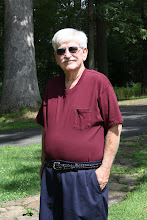ALEX BEAM
An uncivil action in Maine
By Alex Beam, Globe Columnist | March 8, 2006
'Boston Legal" goes to Portland, Maine, this week with a real-life episode -- the latest battle in a long-running lawyergeddon pitting two famous, charismatic lawyers against each other.
A few years ago, Jan Schlichtmann and Thomas Sobol got the idea to file a class-action lawsuit against Maine-based water purveyor Poland Spring, alleging impurities in its water supply. Schlichtmann gained fame as the protagonist of Jonathan Harr's best-selling book, ''A Civil Action," and was portrayed by John Travolta in the movie. Sobol has cachet of his own. He was the star witness in Massachusetts's successful 2003 attempt to reduce its billion-dollar legal bill in the landmark anti-tobacco litigation. I once described Sobol as ''closely resembling Bruce Springsteen before the Boss started showing his age."
In a trial that may last three weeks, expect to see Schlichtmann take the stand against his former colleague and friend, who is being sued by former clients of the two men. ''It's very distressing and tragic," Schlichtmann says. ''To this day I'm astonished that we've ended up in this position." Paparazzi alert! Eco-pol Robert F. Kennedy Jr. is expected to testify, as his New York-based Keeper Springs water company (''where all our profits are donated to the environment") has been enmeshed in the multistate, down-and-dirty battle of mutually assured character destruction.
In a nutshell, Schlichtmann, Sobol, the gravel-voiced criminal defense specialist Max Stern, and Alabama lawyer Garve Ivey mounted a two-pronged assault in 2002 on Poland Spring, which is owned by Switzerland-based Nestle Group. There was the class-action suit, and also business litigation on behalf of Keeper Springs, Glenwood Farms, and two other water companies. After litigation filed in Massachusetts, Maine, and Illinois, Schlichtmann negotiated a $20 million settlement of the business claims and likewise settled the class-action suit. As a Poland Spring customer, I happened to be a ''beneficiary" of the latter suit. I recall receiving some measly coupons that I never bothered to cash in.
Sobol, Ivey, and Stern objected to the settlements. To say that feelings are still raw would be an understatement. ''Nestle put some money on the table, which was not enough for everybody," says Stern, ''and Jan said, 'What we'll do is we'll screw the class.' "
''Schlichtmann bastardized the entire class-action process to get his payoff from Nestle," says Ivey, who has negotiated his way out of being a defendant at the Portland trial. ''This whole [Maine] lawsuit is a figment of Jan's overactive imagination. He generated this lawsuit by former clients of ours to run Tom Sobol off the litigation." (Sobol declined to comment.)
''They are trying to create this bogeyman to justify the unjustifiable -- betraying their clients," retorts Schlichtmann. ''Contrary to the wishes and desires of their clients, they tried to destroy the possibility of a settlement. You can't spin this any other way."
In the original Maine complaint -- there is parallel litigation in Massachusetts, just to confuse you -- two of Sobol's former clients, Glenwood Farms and Carrabassett Spring Water, are suing him for attempting to derail the proposed settlements. Glenwood Farms, which is now part of Nestle, filed an eight-count claim against Sobol, alleging that his acts ''were so outrageous that malice toward Glenwood can be implied." It asks for unspecified damages and court costs.
''It's a dangerous situation for Tom, because he's being tried on the home turf of Poland Spring," says Stern. ''What he's really being tried for is doing what was right and what his conscience told him what to do."
Free plug
I've always liked MIT professor Loren Graham, so I was happy to see an over-the-top, starred review of his new book, ''Moscow Stories," in Publishers Weekly. The generally trustworthy PW calls ''Moscow Stories" a ''fascinating book recapping more than 40 years of visiting the Soviet Union and, later, post-Soviet Russia. . . . Not only are the stories captivating but they are also well told; Graham's that rare academic who knows how to write for a popular audience."
Thursday, October 22, 2009
Subscribe to:
Post Comments (Atom)



No comments:
Post a Comment